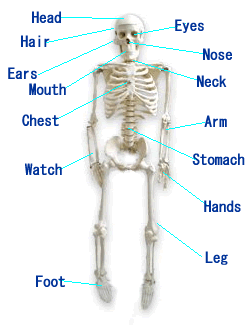Preparation
You need to start preparing your presentation early. Don’t leave it until the last minute. A good presentation takes time. Preparation is vitally important.
Here are some useful steps to follow:
1. Read the topic a number of times. Think through how you will approach it.
2. Thoroughly read the question and the criteria sheet.
- Clearly identify what is expected of you.
- Does the question want you to describe, inform, explain, persuade, argue, evaluate, demonstrate or compare and contrast?
- You need to determine exactly what is being asked of you. You will probably be given a criteria sheet for your assessment. This will spell out the weighting given to different pieces of assessment, and may also outline the allocation of marks for clarity, research, organisation and so on.
- Make sure you allocate your preparation time and expertise with reference to the allocation of marks. For example if there are only 5 marks out of 40 allocated to slides and/or handouts then the best PowerPoint slides in the world cannot get you more than 5 marks – allocate your time accordingly!
3. Begin your research. This is a tertiary level task so you need to research your topic thoroughly at least as much as you would for a written paper. To feel really confident with your subject matter, especially at question time, solid research is the key.
4. Keep the main points you have gained from your research with you for a couple of days and try to think of some interesting ways to present your information – inspiration may strike you at the most unexpected moment.
5. You cannot fluke a good oral presentation. You need to work hard in the preparation stage so that you can guarantee success. A good public speaker makes it look easy---but don't be fooled---she or he has put a good deal of preparation and planning into the delivery of the speech.
- Sit down and plan your presentation. Planning is very important. Careful planning will give you the opportunity to revisit your research and think about how best to present it.
- A mind map may be useful here. Write all your ideas (briefly – key words are enough) on a large sheet of paper.
- By now you should have established a central idea or thesis. Try to link all your ideas to your thesis and discard any that seem relatively unimportant.
6. Once you have a good idea of what your presentation is really about and what ideas you hope to get across it is time to start formalising your notes.
7. Work on your introduction and conclusions, making sure that they are attention grabbers. Make sure your structure presents the material in the best possible way.
8. Sort out what visual aides you will use and write your power point slides (if using power point)
9. Fine tune your presentation. What are the crucial points you are making? Are these clear enough?
10. Practice is crucial. You will become more familiar with the material, more confident in your ability as a presenter and better able to excel on the day. Give your presentation to whoever will listen. For example, ask a peer to listen to your talk and you can listen to their's in return or try turning the TV off and performing for your parents. If all else fails, jump in front of a mirror and practice your presentation. If you get a chance, try running through your presentation in the actual room where you will be giving it. You could try video-taping yourself giving your presentation so that you can see what you look like (take note of any habitual mannerisms or distracting gestures).
For more helpful hints, follow the link to Fred.


